I had wanted this week’s article to be a lightly analytical, celebratory exploration of my hot takes for Ikoria, but I can’t help it. I’ve gotta do it, to weigh in on what the majority of the community can’t seem to stop obsessing about, and with good reason. The Companions are quite possibly the most powerful mechanical evolution to Magic since the conception of Planeswalkers. The Companions’ impact on Magic is scourging across every Constructed format, and even Limited too. A bit dramatic, and perhaps too early to say with any certainty, but here we are.
So what about for cube? Are the Companions good enough to take hold in our favorite format? I’ll be zooming in today on where where Companion exists within the realm of cube design, and what ethics might be at play when opening up our precious slots to what many consider an utterly broken litter of Magic cards.
It’s a Conspiracy
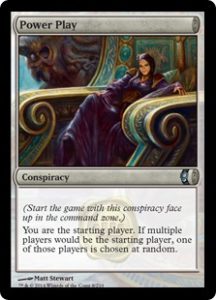
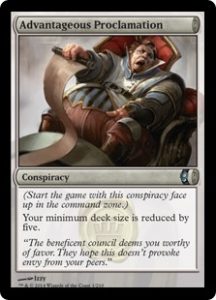
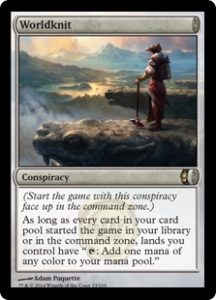
The most pertinent analogue to the fit and function of Companion in cube is Conspiracy. The main difference is that Companion draft picks feel like accepting a stipulation (a popular not-for-profit way to draft cube on stream) while Conspiracy picks feel like obligations; they have little-to-no cost to draft and will go into any deck without costing mana or taking up any deck space. For cube, Conspiracies are straight-up broken; they push against the edge of what, exactly, defines a Magic card.
Companions are sort of the opposite. They have high deckbuilding costs—with the exception of Lutri, the Spellchaser, who only asks that you can cast Red or Blue cards—which, when fulfilled, unlock the reward of having an extra card in your opening hand. Companions can also be cards in your deck if the deckbuilding requirements cannot be met. This gives Companions more play than Conspiracies, which don’t exactly interact all that much.
Even with these differences, the effect either can have on your deck is profound. If you’re questioning whether to test or include any of the Companions in your cube, consider whether you’d allow Conspiracies into the mix, and whether you believe Conspiracies make for a fun play experience. Your answer should guide you in the right direction.
The Value of a Card
If you’re reluctant to test or include any of the Companions in your cube, you’re not alone. Ostensibly, the tension in deckbuilding costs versus the extra card you begin games with is interesting design space. However, I often find Magic players are too quick to underestimate, or even trivialize the value of a card. This is especially true over the past year when the average power level of new cards has aggressively risen, sometimes to the point of absurdity. Cube will exacerbate this problem when we curate environments where “every card is amazing.” The ease with which our individual cards acquire an advantage can become deadening, but the truth is a card matters. A card matters a lot, and these Companions can be worth much more.
In fact, starting with a Companion in limited is so powerful that going out of your way to “unlock” your Companion is already considered among players to be optimizing your deck’s performance. The same can be said for cube, but with a few caveats. Not all Companions are created equal, and for some of them the hoops you’ll have to jump through means running an undesirable number of mediocre cards in your environment. And some of the Companions, on the other hand, might be so low-cost, so easy to unlock that they’ll approximate Conspiracies—and sometimes even better than that.
Lutri, the Spellchaser has understandably ruffled the most feathers. Imagine taking Lutri early in a cube draft; now imagine seeing it later on, in pack three, and tell me what changes? Besides not being in Blue or Red already, Lutri will be basically an auto-pick, one which starts in your opening hand every game and cannot be interacted with—except countered, I suppose. What other cards can you think of that are auto-picks in cube? Lands? Mana rocks? What about Power?
I’m not calling Lutri power, but I believe it’s much closer than you might think. The opportunity cost is so unreasonably low that I can’t imagine Lutri being ranked anywhere outside the top ten cards. In any cube. There is literally no difference between a cube deck that runs Lutri and one that doesn’t. Sure, we can talk about forking Ancestral Recall or whatever; but that doesn’t justify or prove much besides the better spells that are in your deck, the better your Lutri ETB will be. Just casting a 3/2 flash is more than enough. If you can’t see that, I’m not really sure what more I can say.
If you could make your opponent mulligan every game, would you? If you believe that to be not only interesting Magic, but fun as well—then consider running Lutri. For me, it’s akin to Power.
What About the Others?
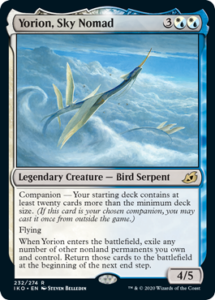
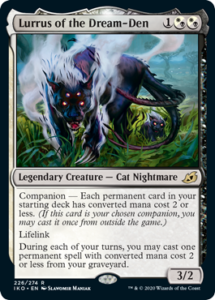
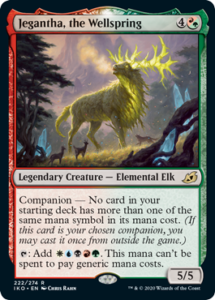
There are Companions which I think make for interesting cube stipulation drafts. The payoff is high enough to justify building around them, but each can also simply be drafted and played as any other Magic card. (I have to admit I still don’t think of the Companions as “real” Magic cards.) Yorion, Sky Nomad asks us to build 60-card card decks with lots of permanents and specifically ones which have great ETB effects; Lurrus of the Dream-Den is playable in cheap aggressive decks; and Jegantha, the Wellspring allows us to super-ramp and color fix.
While I note these Companions as “interesting stipulations,” I believe they’ll largely be more effective as cards in your deck and not as Companions. Maybe Yorion is just too fun and sweet not to try, and should slot well enough into the Value Town Magic Online approach to cube design. But a card like Lurrus I’d rather just play in a low-curve White deck. So, while unlocking these cards sounds great, and the extra card is—well, a serious advantage—I think the non-Lutri Companions have enough tension going on to warrant inclusion into high-power environments. Or, your large, nonsense filled two-for-one cube.
It comes down to this: How much better is it to be up an extra card when every deck is trying to constantly outvalue the others? As we’ve seen already in basically every Constructed format, it’s a lot better. As exciting as it might be to try something new and paradigm-shifting, adding any of these Companions to your cube should not be done lightly.

